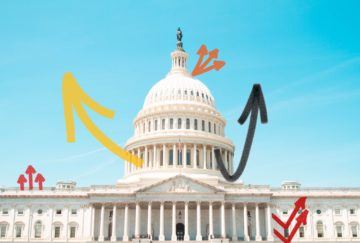 Mariana Mazzucato, Rainer Kattel, and Josh Ryan-Collins over at Boston Review:
Mariana Mazzucato, Rainer Kattel, and Josh Ryan-Collins over at Boston Review:
When President Joe Biden campaigned last year under the slogan “build back better,” he signaled a break with decades of economic thinking that prescribed a limited government role in the economy. As the New York Times put it in April, Biden’s proposal to cut carbon emissions in half by 2030 is “perhaps the greatest bet in recent American history on what economists call industrial policy, the idea that the government can steer the development of jobs and industries in the economy.”
The United States is not alone. Countries throughout Europe and elsewhere are increasingly turning to the view that governments should use industrial policy to tackle grand challenges. Recognizing this trend, the International Monetary Fund issued a report in 2019 called “The Return of the Policy That Shall Not Be Named: Principles of Industrial Policy.”
Why could this policy “not be named”? The short answer is that industrial policy was one of the many casualties of an international shift in economic policy that began in the 1980s and flourished under the administrations of Ronald Reagan in the United States and Margaret Thatcher in the United Kingdom. The emergent sensibility—what we now call neoliberalism—was codified in 1989 in the Washington Consensus, which championed privatization, deregulation, and free trade. Along with these central pillars came an emphasis on low budget deficits, independent central banks focused on low inflation, and the liberalization of trade and foreign direct investment. This outlook was deeply confident in markets and deeply skeptical of government action, beyond the state’s limited role in enforcing property rules and investing in education and defense. “On the basis of an exhaustive review of the experience of developing economies during the last thirty years,” the World Bank summed up in the early 1990s, “attempts to guide resource allocation with nonmarket mechanisms have generally failed to improve economic performance.”
Today it is precisely those “market mechanisms” that appear not to have delivered on their promise.
More here.
